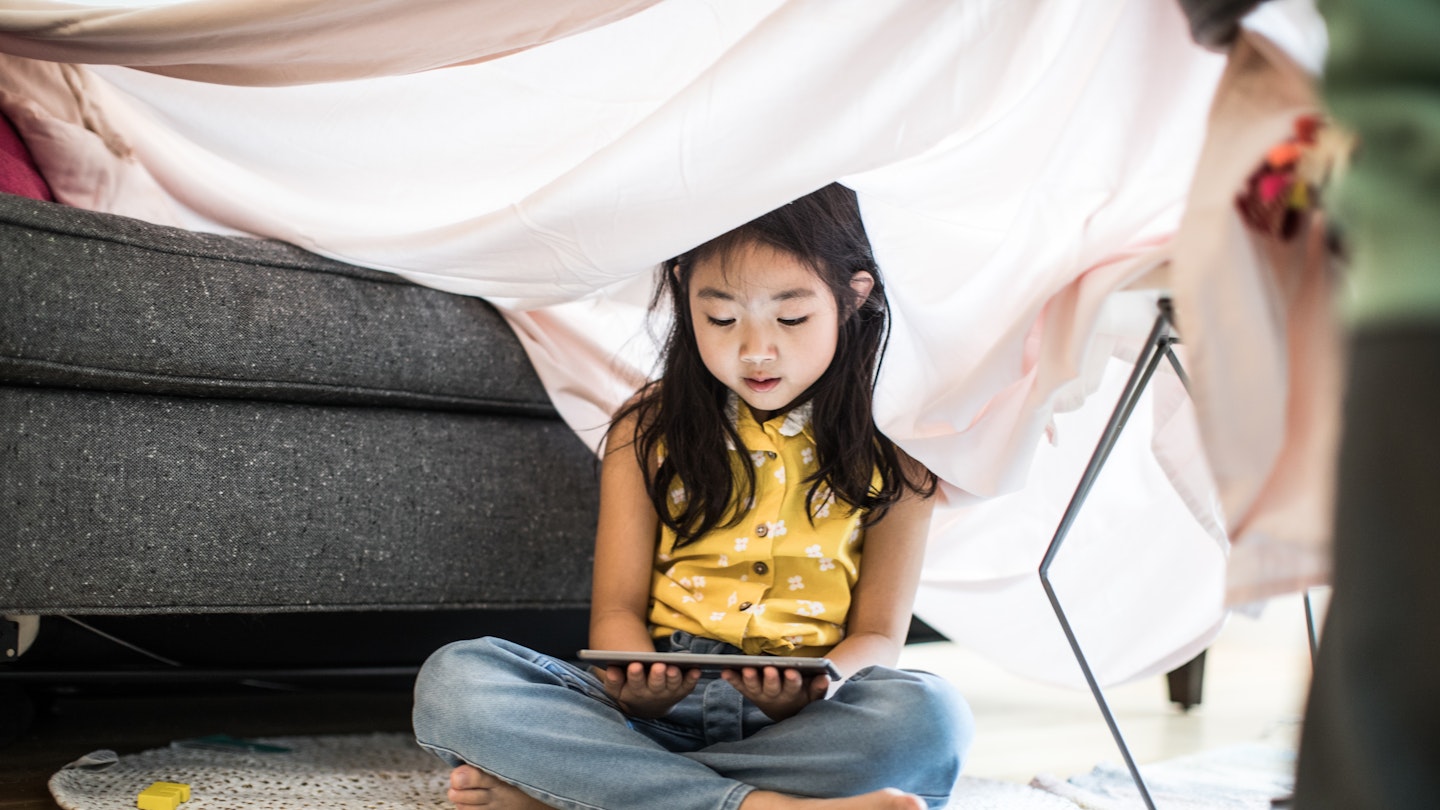‘Both me and my husband work full time so when our two and five year olds were home with us throughout lockdown, it was a real struggle to occupy them. We became quite reliant on our iPad, it just keeps them so engaged and gives us breathing room to get stuff done.’
Rebecca Lockwood is one of many working parents who, in the need to balance childcare and work, found themselves heavily reliant on tech throughout lockdown. Most notably, her iPad became her best friend. As the only thing able to capture her kids attention for long enough spans to blast through those never-ending emails, she’s not alone.
But with increased screen time comes the dreaded guilt so many parents feel even with the strains of lockdown making life so much busier. ‘The screen time did leave me feeling guilty at times in lockdown, just because of the pressure of being all things, the best mum, still working and bringing in an income, entertaining the kids at all times and then on top of that being with the kids full time and homeschooling, it was all a bit much,' Rebecca explains. 'I had to keep reminding myself that we don't all have this figured out all time and tech is the much-needed were a tool to help entertain and educate the kids at the same time.
That’s why parents have been on a mission to make their iPads super educational, not only keeping kids engaged but reducing the guilt so many feel. For Rebecca, it meant installing educational apps like BBC Bitesize and Twinkl, making sure any games they played were based around learning colours, numbers or reading and making sure the whole family got involved at times to be more interactive.
Halima Bobs, who has one pre-school aged child, agrees educational apps are super important. ‘With my pre-schooler I only keep apps on there that have an educational element, so games that involve alphabets or numbers,’ she says. ‘Also, I keep the Wi-Fi turned off on the pad so she can’t access YouTubes cartoon and get distracted!’
For Nathan Higham, who has one son, YouTube can also be a great educational tool though too. ‘My partner and I let our five-year-old, Wayne, watch the YouTube channel Alphablocks,’ he says. ‘Especially one called “Learn to Read, Phonics for Kids, Writing Made Easy” which has nearly 50million views! It’s really good for kids learning to read, it keeps education fun for them.’
The latest iPad mini - Grazia
 1 of 1
1 of 1iPad mini, £399
Other great apps include Tynker, which teaches kids how to code, Hooked on Phonics - which helps kids learn to read - and WWF Together, a World Wildlife Fund app that educates children on endangered species through stunning and engaging visuals.
On Internet Matters, you can find handy material on how to set up parental controls on iPads specifically including setting screen time to set content privacy restrictions and manage in-app purchases. If you click ‘This is my child’s device’ for example on iPads, you can make it so only certain apps are “allowed”. You can also set a password to changing these settings if your child is particularly tech-savvy.
'I always worry about screen time and whether my son is having too much – or more than other kids,' says Rhiannon, mum of one. 'But some days its unavoidable and making a safer space for Blake with loads of apps he really enjoys learning from has made a big difference. On days when I’ve got meetings and he’s at home, or for instance once when we had to keep him still on a six-hour ferry, my iPad is a Godsend.'
And to ease that guilt a little further, we spoke to expert Jim Morrison - founder of OneSub, a digital platform working against the dangers of information manipulation. For parents particularly worried about how addictive screen time can be, he has three tips to 'help your child transition to more mindful activities'...
1. Go old fashioned
'Most traditional board games are available for tablets and these days taking on the computer can be a real challenge even for strong players,' he says. 'Games like Go and Chess are great for exercising mental acuity, risk management and strategising - skills that will help their whole lives, not least at school. Games like these don’t drain your child’s dopamine levels like most modern games are designed to do either, so your child won’t end up exhausted.'
2. 'Je ne sais pas.'
'There are loads of apps for learning a foreign language but DuoLingo, in particular, does a fantastic job of gamifying the activity just enough to build confidence and consistency as your child learns. Maybe pick a language that doesn’t feel like the kind of thing you’d learn in school, like Arabic or Japanese. If they take to it, it’s a fabulous way to open up their cultural imagination.'
3. Bring it back to the real world.
'It’s very easy for kids’ attention to get sucked into the digital realm but remember that YouTube is also filled with excellent, real-world projects,' he concludes. 'A great place to start is with sketching or painting tutorials where your kids can follow along. They can be super- engaging, they keep everyone occupied in a mindful activity and your kids will have something tangible to be proud of by the end of it.'
Read More:
Seven Women On How They Use Tech To Help Manage Their Busy Lifestyles
From Disco Lights To Karaoke Machines, Here Are The Best Affordable Tech Gifts for Christmas 2020
